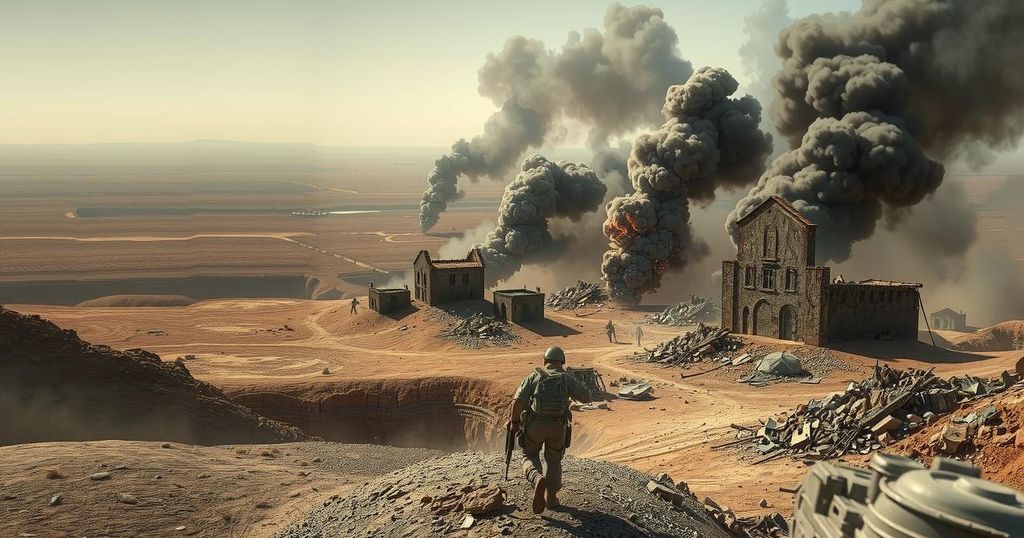U.S. Strikes Against Houthis Signal Shift in Middle Eastern Military Strategy
U.S. airstrikes have successfully targeted Houthi military capabilities, reportedly without civilian casualties. The operations reflect a firm U.S. stance against Houthi aggression and Iran’s influence. President Trump has warned Iran would be held accountable for any retaliation from the Houthis. The effectiveness of these strikes in neutralizing the Houthi threat remains contingent on ongoing Iranian support.
In recent U.S. airstrikes, over 30 Houthi military targets were neutralized, aiming to dismantle the group’s drone, missile, and air defense systems. Lt. Gen. Alexus Grynkewich reported substantial military casualties from these strikes while indicating no credible claims of civilian casualties. The attacks targeted various essential Houthi capabilities, including training sites and weapon storage facilities.
Despite the airstrikes’ effectiveness, Yemen’s Houthi rebels reported that 53 individuals were killed, including five children, amidst ongoing attacks. Pentagon spokesperson Sean Parnell stated that the airstrikes communicated the message that attacks on American troops would have consequences, but also insisted that these operations were not an indefinite offensive aimed at regime change in the Middle East.
President Donald Trump articulated that the Houthis were to be held responsible for their actions, but any retaliatory strikes by them would implicate Iran directly. He emphasized that future attacks would meet severe responses, framing Iran as manipulative in its support of the Houthis in their conflict engagements.
Moreover, the Houthis have threatened to enhance their attacks in the Red Sea in efforts to influence humanitarian aid deliveries to Gaza. Meanwhile, Trump has attempted diplomacy, reaching out to Iran to engage in nuclear discussions, which Iran rejected amid heightened tensions due to a renewed U.S. sanctions strategy. Trump pledged to apply overwhelming military force until the Houthi threat is neutralized.
The U.S. military’s strategy includes destroying missile launch sites aimed at Red Sea shipping, yet the effectiveness of these operations relies on their ability to hinder Houthi operations. Zineb Riboua from the Center for Peace and Security suggested ongoing Iranian support could undermine this mission. Military spokespersons, like Marco Rubio, noted that Houthi attacks on U.S. Navy assets are notably high.
The current operations significantly differ from previous engagements, reflecting a more aggressive stance by the U.S. since the Biden administration. Nevertheless, some experts argue that U.S. involvement may not be necessary, highlighting that the Houthi threat primarily affects European and Chinese interests. Gene Moran criticized the notion of merely using military force against ideological opponents like Iran without a broader strategy to address underlying issues.
In conclusion, the recent U.S. airstrikes targeting Houthi military capabilities illustrate a decisive shift in U.S. military engagement in the region. The strikes affirmed serious American commitment to interests in the Middle East, while also underscoring the complexities of Iranian influence. It remains to be seen whether these actions will effectively dismantle the Houthi threat or if Iranian support will sustain their resilience against U.S. efforts.
Original Source: www.foxnews.com




Post Comment